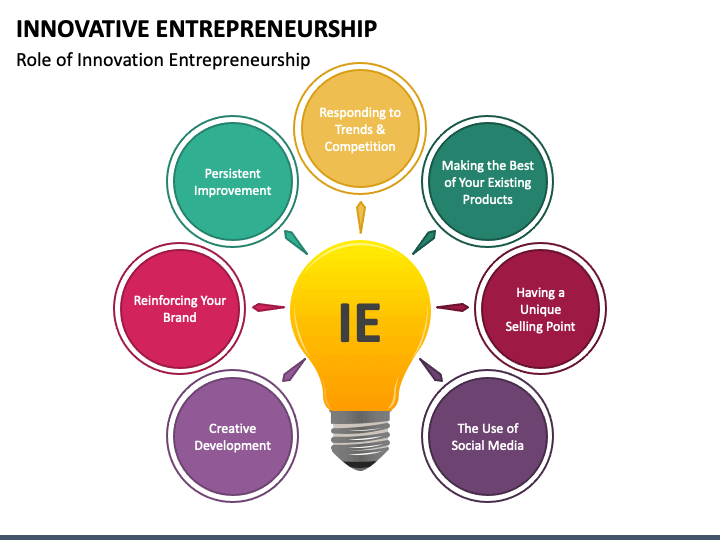User Ideas / Prospects
Sustainable food production through agricultural engineering involves a combination of techniques, technologies, and practices designed to increase efficiency, reduce environmental impact, and ensure long-term viability. Here are several key strategies:
Precision Agriculture:
- GPS and GIS Technologies: Use GPS for field mapping and GIS for analyzing soil, crop, and field data to make precise planting, fertilizing, and harvesting decisions.
- Remote Sensing: Employ drones and satellites to monitor crop health, soil conditions, and water usage.
- Variable Rate Technology (VRT): Apply inputs like fertilizers and pesticides at variable rates across a field, optimizing their use and minimizing waste.
Soil Health Management:
- Cover Cropping: Plant cover crops to improve soil structure, increase organic matter, and prevent erosion.
- Crop Rotation: Rotate different crops in the same field to disrupt pest cycles and improve soil fertility.
- Conservation Tillage: Reduce tillage to maintain soil structure, reduce erosion, and increase water retention.
Water Management:
- Efficient Irrigation Systems: Implement drip or sprinkler irrigation systems to reduce water use and increase efficiency.
- Rainwater Harvesting: Collect and store rainwater for irrigation purposes.
- Soil Moisture Sensors: Use sensors to monitor soil moisture levels and irrigate only when necessary.
Integrated Pest Management (IPM):
- Biological Controls: Use natural predators or parasites to control pest populations.
- Cultural Practices: Implement practices like crop rotation and intercropping to reduce pest habitats.
- Chemical Controls: Use pesticides as a last resort and select those with minimal environmental impact.
Energy Efficiency:
- Renewable Energy Sources: Incorporate solar, wind, or bioenergy systems to power agricultural operations.
- Energy-Efficient Equipment: Use modern, energy-efficient machinery and optimize their use to reduce fuel consumption.
Waste Reduction and Recycling:
- Composting: Convert organic waste into compost to enrich soil.
- Residue Management: Utilize crop residues for mulching or as animal feed.
- Biodegradable Packaging: Develop and use biodegradable packaging materials for food products.
Genetic Improvement:
- Breeding and Biotechnology: Develop crop varieties that are more resistant to pests, diseases, and environmental stresses.
- GMO and CRISPR Technologies: Use genetic modification and gene editing techniques to enhance crop resilience and productivity.
Agroecology and Permaculture:
- Agroforestry: Integrate trees and shrubs into agricultural landscapes to improve biodiversity and ecosystem services.
- Polyculture: Grow multiple crops in the same space to mimic natural ecosystems and increase resilience.
Data and Analytics:
- Big Data and IoT: Utilize data analytics and Internet of Things (IoT) devices to monitor and optimize all aspects of agricultural production.
- Farm Management Software: Implement software solutions to manage and analyze farm operations more efficiently.
Education and Training:
- Farmer Training Programs: Educate farmers on sustainable practices and technologies.
- Research and Development: Invest in R&D to continuously improve sustainable agricultural methods.
Implementing these strategies requires a holistic approach, considering economic, environmental, and social factors to ensure that agricultural practices are truly sustainable.
Designing an any kind of engineering operation from scratch involves a structured approach that encompasses planning, design, implementation, and continuous improvement. Here’s a step-by-step guide on how to engineer such an operation:
1. Define Objectives and Goals- Operational Goals: Clearly define what the operation aims to achieve. These could be production targets, service delivery standards, efficiency improvements, etc.
- Key Performance Indicators (KPIs): Establish KPIs to measure success, such as cost efficiency, quality control, output volume, and customer satisfaction.
- Market Analysis: Assess market demand, competition, and potential customer base.
- Technical Feasibility: Determine the technical requirements and capabilities needed.
- Financial Feasibility: Analyze the financial aspects including costs, funding sources, and expected return on investment (ROI).
- Risk Assessment: Identify potential risks and develop mitigation strategies.
- Location Analysis: Choose a site based on factors like proximity to suppliers and customers, availability of skilled labor, and infrastructure.
- Layout Planning: Design an efficient layout for the operation, optimizing space for workflows, storage, and future expansion.
- Material Requirements: Identify and source necessary materials and supplies.
- Equipment and Technology: Select appropriate machinery, tools, and technology that align with operational needs.
- Human Resources: Plan for the recruitment, training, and management of staff.
- Workflow Design: Map out the workflow processes, from raw material input to finished product or service delivery.
- Standard Operating Procedures (SOPs): Develop SOPs to ensure consistency, safety, and efficiency in operations.
- Quality Control Systems: Implement quality control measures to maintain high standards.
- Project Management: Use project management methodologies (e.g., Agile, Waterfall) to oversee the implementation phase.
- Infrastructure Development: Construct or set up the physical infrastructure and install equipment.
- Technology Integration: Integrate necessary software and hardware systems for operations, such as ERP systems, CRM tools, and automation technologies.
- Sustainable Practices: Incorporate energy-efficient and sustainable practices to minimize environmental impact.
- Resource Optimization: Implement strategies to optimize the use of resources, such as water, energy, and raw materials.
- Regulatory Compliance: Ensure the operation complies with all relevant laws, regulations, and industry standards.
- Health and Safety Protocols: Develop and implement health and safety protocols to protect employees and ensure a safe working environment.
- Vendor Selection: Identify and establish relationships with reliable suppliers and vendors.
- Logistics Planning: Plan logistics for the efficient movement of materials and products.
- Inventory Management: Implement inventory management systems to track and control stock levels.
- Budgeting: Develop and manage budgets to control costs and allocate resources effectively.
- Financial Tracking: Use financial tracking systems to monitor expenditures, revenues, and profitability.
- Performance Monitoring: Regularly monitor operations against KPIs and performance metrics.
- Feedback Systems: Establish systems for feedback from employees, customers, and other stakeholders.
- Continuous Improvement: Implement continuous improvement processes such as Lean, Six Sigma, or Kaizen to enhance efficiency and effectiveness.
- Scalability: Design operations with scalability in mind to accommodate future growth.
- Expansion Planning: Plan for potential expansion into new markets or product lines.
- Initiation Phase: Define goals, conduct feasibility studies, and secure funding.
- Planning Phase: Create detailed project plans, including timelines, resource allocation, and risk management strategies.
- Execution Phase: Develop infrastructure, procure materials and equipment, and hire and train staff.
- Operational Phase: Begin operations, monitor performance, and ensure compliance with standards and regulations.
- Evaluation and Adjustment: Regularly evaluate performance, gather data for analysis, and make necessary adjustments for improvement.
By following this comprehensive approach, an engineering operation can be effectively designed and implemented, ensuring that it meets its objectives while remaining efficient, sustainable, and adaptable to future challenges.
Sustainable agriculture is significantly transforming the food industry by promoting practices that are environmentally friendly, economically viable, and socially responsible. Here are some key ways in which sustainable agriculture is changing the food industry:
1. Environmental Impact Reduction- Resource Efficiency: Sustainable agriculture emphasizes the efficient use of resources such as water, energy, and soil. Techniques like drip irrigation, crop rotation, and conservation tillage help reduce resource consumption and minimize environmental impact.
- Biodiversity Preservation: By promoting diverse cropping systems and integrating pest management practices, sustainable agriculture helps maintain and enhance biodiversity, which is crucial for resilient ecosystems.
- Reduced Chemical Use: Sustainable practices reduce the reliance on synthetic fertilizers and pesticides, leading to food products with fewer chemical residues. This contributes to healthier food options for consumers.
- Organic Farming: The rise of organic farming, a subset of sustainable agriculture, has led to increased availability of organic food products that are grown without synthetic chemicals and GMOs.
- Cost Savings: Sustainable farming practices can lead to long-term cost savings for farmers through reduced input costs and improved soil health, which enhances productivity over time.
- Market Opportunities: There is a growing market demand for sustainably produced food. Farmers who adopt sustainable practices can tap into premium markets, such as organic and fair-trade, which often command higher prices.
- Fair Labor Practices: Sustainable agriculture often involves fair labor practices, ensuring that farm workers receive fair wages and work in safe conditions.
- Community Support: Local and regional food systems supported by sustainable agriculture strengthen communities by keeping food production and consumption local, reducing transportation costs and supporting local economies.
- Precision Agriculture: Advances in technology, such as GPS-guided equipment, drones, and data analytics, enable more precise and sustainable farming practices. These technologies help optimize input use, reduce waste, and increase efficiency.
- Biotechnology: Sustainable agriculture incorporates biotechnological innovations, such as genetically modified crops designed to be more resistant to pests and diseases, reducing the need for chemical interventions.
- Carbon Sequestration: Sustainable practices such as cover cropping, agroforestry, and reduced tillage help sequester carbon in the soil, contributing to climate change mitigation.
- Resilience Building: By enhancing soil health and promoting biodiversity, sustainable agriculture increases the resilience of farming systems to climate change and extreme weather events.
- Informed Choices: Growing awareness among consumers about the environmental and social impacts of their food choices is driving demand for sustainably produced food. This shift in consumer behavior is encouraging more producers and retailers to adopt sustainable practices.
- Labeling and Certification: Certifications such as USDA Organic, Fair Trade, and Rainforest Alliance provide consumers with information about the sustainability of their food, enabling them to make informed purchasing decisions.
- Government Support: Many governments are recognizing the importance of sustainable agriculture and are providing incentives, subsidies, and support programs to encourage farmers to adopt sustainable practices.
- International Agreements: Global initiatives and agreements, such as the United Nations' Sustainable Development Goals (SDGs), emphasize sustainable agriculture as a critical component of sustainable development.
- Food Waste Minimization: Sustainable agriculture promotes practices that reduce food waste throughout the supply chain, from farm to table. This includes better harvesting techniques, improved storage and transportation, and encouraging the use of imperfect but edible produce.
- Circular Economy: The integration of circular economy principles in agriculture, such as composting and recycling agricultural by-products, helps create a more sustainable and efficient food system.
- Traceability: Sustainable agriculture often involves greater transparency and traceability in the food supply chain. Consumers and retailers can track the origins of their food, ensuring it meets sustainability standards.
- Ethical Sourcing: Retailers and food companies are increasingly committing to sourcing ingredients sustainably, which drives changes in agricultural practices at the production level.
In summary, sustainable agriculture is reshaping the food industry by promoting environmental stewardship, improving food quality, ensuring economic viability, enhancing social responsibility, and driving technological and policy innovations. These changes are leading to a more sustainable and resilient food system that benefits producers, consumers, and the planet.
mechanical engineering has huge contributions Human Health and Biological research and curation in several ways, primarily through the principles of biomechanics, materials science, and manufacturing processes. Here’s how mechanical engineering contributes to the field of tissue engineering:
1. Biomechanics- Understanding Mechanical Properties: Tissue engineering requires knowledge of the mechanical properties of biological tissues, such as elasticity, strength, and viscoelasticity. Mechanical engineers study these properties to design scaffolds and materials that mimic natural tissue behavior.
- Stress-Strain Analysis: Mechanical engineers use stress-strain analysis to understand how engineered tissues will respond to mechanical loads and forces, ensuring that they can function properly in the body.
- Development of Biomaterials: Mechanical engineers play a crucial role in developing and selecting materials that are biocompatible and have the appropriate mechanical properties for tissue engineering applications. This includes materials like hydrogels, biopolymers, and composites.
- Surface Engineering: Mechanical engineers work on modifying the surface properties of biomaterials to enhance cell adhesion, proliferation, and differentiation, which are critical for successful tissue engineering.
- Scaffold Fabrication: Mechanical engineers design and develop advanced manufacturing techniques, such as 3D printing, electrospinning, and bioprinting, to create scaffolds that provide the necessary structure and support for tissue growth.
- Microfabrication: Techniques from microfabrication are used to create intricate and precise structures at the microscale, which are essential for mimicking the complex architecture of natural tissues.
- Computational Modeling: Mechanical engineers use computational models to simulate tissue growth and development, as well as to predict how engineered tissues will interact with the host environment. These models help in optimizing scaffold design and predicting outcomes.
- Finite Element Analysis (FEA): FEA is used to model the mechanical behavior of scaffolds and tissues under various loading conditions, ensuring that they can withstand physiological stresses.
- Nutrient Transport: Mechanical engineers study fluid mechanics to understand and design systems for nutrient transport and waste removal in engineered tissues. This is crucial for maintaining cell viability and function in tissue constructs.
- Bioreactor Design: Mechanical engineers design bioreactors that provide the necessary physical and biochemical environment for tissue growth and maturation. These bioreactors often incorporate fluid flow systems to simulate the in vivo conditions.
- Cell-Matrix Interactions: Mechanical engineers investigate how mechanical forces and the mechanical environment influence cell behavior and tissue development. This field, known as mechanobiology, is essential for designing scaffolds that can direct cell differentiation and tissue formation.
- Bone Tissue Engineering: Mechanical engineers design scaffolds that mimic the mechanical properties of bone and promote osteogenesis. These scaffolds must support load-bearing functions while facilitating the growth of new bone tissue.
- Cardiac Tissue Engineering: Designing constructs that can replicate the mechanical and electrical properties of heart tissue involves understanding the biomechanics of cardiac cells and tissues.
- Cartilage Repair: Scaffolds for cartilage repair need to have the appropriate viscoelastic properties to withstand compressive forces in joints. Mechanical engineers contribute by designing materials and structures that can endure these conditions.
In summary, mechanical engineering provides essential tools, techniques, and knowledge that are crucial for the successful development of engineered tissues. The interdisciplinary collaboration between mechanical engineers and biomedical scientists drives advancements in tissue engineering,
When i did passed out I did perceive that engineer should have
knowledge of his particular faculties all the fundamentals so
he/she/other can solve the problems and make it new level of upgradation.
but still to make it simple and abstract three fields has been
classified as Software,Device/Hardware and Networking.
and all this happen because skills and career option could be simplified as software need more logic and calculation and understanding regarding skill. in hardware/device he/she/other needs to be more accurate with circuits, assembling of ICs and soldering otherwise there will be huge cost in repairing or de-assembling or might be dis-soldering will happen. and in network all needs to know about operations and operations regarding protocols and protocols regarding configuration and configuration regarding tools.
On this level everything looks fine because all of this three fields required of relevant but still not highly dependent knowledge on each other. as software is mostly about programming, hardware/device is mostly about circuits making and networking is all about troubleshooting and configurations.
but what hacks me that how classifications in each of that fields
happen that sounds completely ridiculous are most of computer engineers
are become marketer of specific company or organization or become lazy
professionals that does not have any more passion to learn or spin off
to new or other relevant technologies. or Narrow minded people that just
want to stick with known things and mindset. as In software field now
there are no more software engineers or software developers there are
.net develops or Java developer or PHP developers.
If you have worked on java and you go for .net than in most of firms you will be told that we don't work on Java and we want expert on .net. call you if there any requirement for java.
I know nower days most of firms in India are just a code shop. not driven by true solution oriented or product/service oriented company service ,problem and product lies outside of India and only code is written on their firm more you write code more you get paid. and if any specific code is already stacked by leaving of developer than new developer is needed to continue write that code. and ASAP start to continue. so money flow not get stopped. and that is why more than 86% code is getting written in India but still stay a lot behind in actual engineering.
I think in software industries there is need to understand actual engineering aspect instead of just selling code. and if there will be an approach to give solution to particular audience to provide service/product than there will be the need of specific alter techniques and need of understanding to be explored as Medium to small level software did not need to get distributed on multi-layer architecture so that can be easily deployed on Apache using PHP or ruby and development+learning both will be faster than creation and deployment on JAVA/C#.
And there are lots of API are there to define easier way to complete the project smooth and rapidly. and for content management there is no need to build any project from the scratch. just need to configure the CMS as per requirement.
And this same thing is happening in networking side as well windows server administrator and Redheat server administrator.
And nower days things are getting more worse spring developer and Asp.net devXpress developer or ASP.net mvc developer.
hope that computer engineering still be art of solving through mathematical,logical,Automation,Communication,connectivity and storage and management problems. instead of just making configuration or writing code for some money.
Thanks for Read till the end. share your comments.
The key thing i understand about authority is that. Authority is only exist becouse in organization each and every person have responsibility of one or multiple task and the one who has most experience and who is highly paid for that has more responsibility. and to fullfill his responsibility he need total cooperation of people. and to achive that he has been assigned some level of authorities.
As far as I understand any Tech/Engineering based organization
following department mostly exist in almost all of the organization and
each have their responsibility.
1. Adminstrative/Management/Executive:-
this is exist because each and every organization have their own goal/aim/vision as well as purpose. and people who are members of this department are responsible for defining what must to do and where should now organization flow must go on with spirit.
2. Sales/Marketing with Account:-
this exist because every organization need to define their market/social value to achive their goal/aim/vision and so first what should be product/services`s cost that must be defined and one which class of socity/market this product is going to make impact and how much big ipact this product could do at what level of depth. once this research has been done Sales/Marketing stratagy along with bussiness model should be defined.
3. Tech and Support / Operations.:-
this exist because none of the vision/goal/aim or purpose could be achieved without particular technologies (If tech/engineering based organization) and this is highly special skilled job. so to define new solution strong team of technical people is most necessary thing. so this department is necessary for How or which way goal/purpose/aim or vision is going to get achieved.
so in moderan corporate organization i belief that responsibility has been distributed properly but what making me harsh is how authority has been distributed. all the authorities except recruiting staff based on specialization has been centralized and have in hand of Head of Management/Administrative/Executive department. each and every organization `s any decision that is good for organization`s progress must be passed through management. all the rules and regulation that is good for only one department and bad for other still followed by all department.
and still if any department work is not get done properly than responsible person is Head of that Particular department. I know there will be time of conflict where two department head will be against each other point. but for that management/executive/administrative department just need to be mediator to solve their conflict by defining priority and effectiveness. there is no need to keep all the authority to centralize.
and of course i am not stating here that Head of Administrative/Executive/Management should not have authority to fire or analyze all the department. he/she must have rights for firing any head person of that particular department. but why all the authorities have been centralized for MD/CEO/Executive director or Chairman.
isn't this bureaucrat-ism is hazardous for organization in sense of achieving its goal/vision/aim or purpose.
Hello Readers,
i am writing this because i am feeling now so much passion to writing this story that did make huge impact on my mind this is the story that is also responsible for open my eye about what is engineering exactly and which kind of aspect every engineers should have. write me any feedback that comes to your mind. after reading this.
This is the story about one man who wants to startup his own timber business and looking for some person that do cut some lumber in the forest. and he had two candidate one is Labor with Muscular Physics and another is recently passed out diploma Cutting and Fabrication Engineer with not that much Physical Strength. After taking an interview of both of them. He become confuse that which side he should go for.
because Labor was asking just for 5000 rupees per month and that Engineer was asking for 10,000 rupees per month he did not able to take decision rationally so he decided to hire both of them just for experiment and find conclusion that which side he should go for. and he assign task to both of them to cut the lumber with axe.
1st day labor did cut 7 logs and Engineer did 3 only
2nd day labor did cut 7 logs again and Engineer did 3 only
3rd day labor did cut 6 logs again and Engineer did 4 only
4th day as same as 3rd day
.....
after 14 days passed
15th day labor did cut 3 and Engineer did 7
After getting this shocking reverse observation that businessman did call both of them and ask what happening with them.
Then labor did replied he is doing 3 times more hard work then before but still he can't able to score because his time is not running well, or god is not with his or may be his luck is not with him.
Then he did ask same question to Engineer then he reply that in starting days he become tired early so he was not able to score higher. but then he got practiced so he able to improve his score.
But still confusion of that business man did not cleared so he did switch their axes with each other.
and then both score was near to equal Engineers score was one down then Labor and he said that axe blade was not sharp enough to cut the lumber so he did take long time to make it sharpen by rubbing it between stone. and than that Business man ask same question to the Labor and he replied that he did not instructed to do so.
Then that business man was cleared that if he want more profit with aspect of long time then he should hire Engineers then Labor.
After then engineer did suggest to use Chainsaw with electric motor instead of Axe so he can do better.
So this should be an Aspect of Engineering to upgrade the present situation with more felicities with applying scientific knowledge in progressive direction ( ofcours with limitation that it should not harm an environment i am aware of forest devastation due to timber business and Minamata pollution and etc...).
I am writing this because nower days in India Engineering is just to go college and study subject and passing examinations and score in that for earning degrees instead of Gaining knowledge and apply it for do or create something that matters.
This Story did help me to earning Engineering Aspect I hope it help you to all as well.
Thanks For Reading it Till end.
please share your reviews
Engineering, enterprise, and social impact are interconnected fields that collectively contribute to societal advancement and quality of life. This article explores the relationship between these three domains, illustrating how engineering innovations drive enterprise success and generate significant social impact.
Engineering: The Catalyst for Innovation- Technological Advancements
- Innovation and Development: Engineering is the backbone of technological innovation, leading to the creation of new products, processes, and solutions that address various challenges.
- Example: The development of renewable energy technologies such as solar panels and wind turbines, which help reduce carbon emissions.
- Problem-Solving Approach
- Engineering Mindset: Engineers apply a systematic approach to problem-solving, which is essential for developing efficient and effective solutions in various fields.
- Example: Civil engineers designing resilient infrastructure to withstand natural disasters, thereby enhancing public safety.
- Commercialization of Innovations
- Bringing Ideas to Market: Enterprises play a crucial role in bringing engineering innovations to market, transforming prototypes into commercially viable products and services.
- Example: A startup leveraging biotechnology to develop and market advanced medical diagnostics tools.
- Economic Development
- Job Creation and Wealth Generation: Enterprises that harness engineering advancements contribute to economic development by creating jobs, generating wealth, and stimulating further innovation.
- Example: The rise of the tech industry, driven by engineering innovations, leading to the creation of millions of jobs and significant economic growth.
- Operational Efficiency
- Improving Processes: Enterprises utilize engineering principles to optimize operations, reduce costs, and improve efficiency, enhancing overall business performance.
- Example: Manufacturing companies implementing lean production techniques to minimize waste and increase productivity.
- Addressing Societal Challenges
- Solving Real-World Problems: Engineering-driven enterprises develop solutions that address critical societal challenges, such as access to clean water, healthcare, and education.
- Example: Engineers Without Borders working on projects to provide clean drinking water in developing countries.
- Sustainable Development
- Environmental Stewardship: Engineering innovations contribute to sustainable development by creating eco-friendly technologies and practices that reduce environmental impact.
- Example: The development of electric vehicles to reduce greenhouse gas emissions and dependence on fossil fuels.
- Improving Public Health
- Healthcare Advancements: Engineering plays a pivotal role in advancing healthcare through the development of medical devices, diagnostic tools, and treatment methods.
- Example: The invention of minimally invasive surgical instruments that reduce recovery times and improve patient outcomes.
Image: Surgeons using advanced minimally invasive surgical tools
The Synergistic Relationship- Collaboration and Partnerships
- Interdisciplinary Collaboration: The collaboration between engineers, enterprises, and social organizations leads to the development of holistic solutions that maximize social impact.
- Example: A public-private partnership between tech companies and non-profits to provide internet access in underserved regions.
- Innovation Ecosystem
- Creating an Innovation Ecosystem: The synergy between engineering, enterprise, and social impact fosters an innovation ecosystem where ideas are rapidly developed, commercialized, and scaled to benefit society.
- Example: Innovation hubs and incubators that support startups with engineering backgrounds to develop solutions with significant social impact.
The relationship between engineering, enterprise, and social impact is fundamental to creating a better future. Engineering drives innovation, enterprises harness and commercialize these innovations, and the resulting products and services generate substantial social impact. By fostering collaboration across these domains, we can address pressing global challenges, promote sustainable development, and enhance the quality of life for people worldwide.
Bitcoin, often hailed as the revolutionary digital currency, promised to transform the financial landscape with its decentralized nature and blockchain technology. However, despite its initial promise, Bitcoin has largely failed to become a stable and widely accepted form of currency. Instead, it has morphed into a speculative asset, often likened to gambling. This article explores the reasons behind Bitcoin's failure to fulfill its original vision and its transformation into a speculative instrument.
- Extreme Price Fluctuations
- Volatile Market: Bitcoin's value is highly volatile, with dramatic price swings driven by market sentiment, speculation, and regulatory news. This instability makes it impractical for everyday transactions.
- Example: In 2017, Bitcoin's price skyrocketed from around $1,000 to nearly $20,000, only to crash to around $3,000 in 2018, illustrating its unpredictable nature.

- Lack of Price Stability
- Unpredictable Value: For a currency to be effective, it needs to maintain a stable value. Bitcoin's unpredictable fluctuations deter its use as a reliable medium of exchange or store of value.
- Example: Merchants are reluctant to accept Bitcoin due to the risk of significant value loss between the time of sale and the time they can convert it to fiat currency.
- Lack of Price Stability
- Unpredictable Value: For a currency to be effective, it needs to maintain a stable value. Bitcoin's unpredictable fluctuations deter its use as a reliable medium of exchange or store of value.
- Example: Merchants are reluctant to accept Bitcoin due to the risk of significant value loss between the time of sale and the time they can convert it to fiat currency.
- Legal Issues and Fraud
- Association with Illegal Activities: Bitcoin's anonymity has made it a preferred medium for illegal activities, including money laundering and black market transactions. This association has led to negative perceptions and stricter regulations.
- Example: The notorious Silk Road marketplace, which facilitated illegal drug sales using Bitcoin, highlighted the currency's use in illicit activities.
- Merchant Acceptance
- Low Merchant Adoption: Despite initial enthusiasm, relatively few merchants accept Bitcoin for everyday transactions. This limited acceptance reduces Bitcoin's utility as a currency.
- Example: Major companies like Tesla and Microsoft initially accepted Bitcoin but later reversed their decisions, citing volatility and environmental concerns.
- Transaction Speed and Costs
- Scalability Issues: Bitcoin transactions can be slow and expensive, especially during periods of high demand. This inefficiency makes it less attractive for everyday use compared to traditional payment methods.
- Example: During peak times, Bitcoin transaction fees can skyrocket, and confirmation times can extend to hours, making it impractical for quick purchases.
- Speculative Nature
- Investment Over Use: Bitcoin is primarily viewed as a speculative investment rather than a functional currency. Investors buy Bitcoin hoping its value will increase, rather than to use it for transactions.
- Example: The media frequently covers Bitcoin as an investment opportunity, focusing on potential profits rather than its utility as a currency.
- Market Manipulation
- Influence of Whales: A small number of large holders, or "whales," can significantly impact Bitcoin's price, leading to market manipulation and reinforcing its speculative nature.
- Example: Sudden large transactions by whales can cause significant price movements, further deterring its use as a stable currency.
Bitcoin's journey from a revolutionary digital currency to a speculative asset highlights the challenges it faces in becoming a stable and widely accepted medium of exchange. Its extreme volatility, regulatory hurdles, limited adoption, and speculative nature have hindered its potential to be the new age of currency. Instead, Bitcoin has become more akin to a gambling solution, attracting investors seeking high-risk, high-reward opportunities. For Bitcoin to fulfill its original promise, it must overcome these challenges and achieve greater stability, regulatory clarity, and widespread acceptance.
Engineering is at the heart of innovation and progress, driving advancements that shape our world and improve our quality of life. This article explores the critical role engineering plays in building a better future, touching on various fields and their contributions to societal advancement.
Advancements in Technology- Development of Cutting-Edge Technologies
- Smart Devices and AI: Engineers are at the forefront of developing smart devices and artificial intelligence, revolutionizing how we interact with technology and enhancing productivity.
- Example: The integration of AI in healthcare for early diagnosis and personalized treatment plans.

- Internet of Things (IoT)
- Connected Ecosystems: Engineering has enabled the creation of IoT, where devices communicate with each other, leading to smarter homes, cities, and industries.
- Example: Smart cities using IoT to manage resources efficiently and reduce energy consumption.

- Renewable Energy Solutions
- Green Energy Innovations: Engineers are developing renewable energy technologies such as solar, wind, and hydroelectric power, reducing reliance on fossil fuels and mitigating climate change.
- Example: Large-scale solar farms providing sustainable energy to communities.

- Healthcare Innovations
- Medical Devices and Biotech: Engineers develop advanced medical devices and biotechnology solutions that improve healthcare outcomes and enhance the quality of life.
- Example: Wearable health monitors that track vital signs and provide real-time health data.
- Improved Transportation Systems
- Smart and Sustainable Transport: Engineering innovations in transportation, such as electric vehicles and smart traffic management systems, contribute to safer and more efficient travel.
- Example: Autonomous electric vehicles reducing traffic congestion and pollution.

- Industrial Automation
- Efficiency and Productivity: Engineering in automation and robotics has transformed manufacturing, increasing efficiency, productivity, and safety.
- Example: Automated assembly lines in factories producing goods faster and with higher precision.

- Innovation and Entrepreneurship
- Startups and New Technologies: Engineering fosters a culture of innovation and entrepreneurship, leading to the creation of new technologies and businesses that drive economic growth.
- Example: Tech startups developing innovative solutions to address global challenges.

- Sustainable Infrastructure
- Eco-Friendly Buildings: Engineering principles are applied to design sustainable buildings that use less energy and resources, promoting environmental stewardship.
- Example: Green buildings with energy-efficient systems and sustainable materials.

- Access to Clean Water and Sanitation
- Water Treatment Technologies: Engineers develop technologies for clean water and sanitation, improving health and living conditions in underserved communities.
- Example: Portable water purification systems providing clean drinking water in remote areas.

- Education and Empowerment
- STEM Education: Engineering plays a crucial role in promoting STEM education, empowering the next generation with the skills needed to innovate and solve future challenges.
- Example: Educational programs and workshops inspiring young students to pursue careers in engineering and technology.
Engineering is a driving force behind many of the advancements that shape our world and improve our lives. From developing cutting-edge technologies and promoting sustainable development to enhancing quality of life and driving economic growth, engineering is crucial in building a better future. By continuing to innovate and apply engineering principles, we can address global challenges and create a more sustainable, prosperous, and equitable world.

